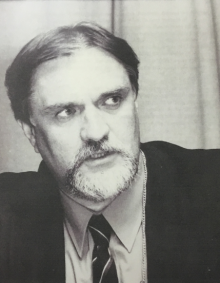CERES Instructor Dr. Oleh Havrylyshyn died suddenly on September 20, 2020. CERES students and faculty benefitted immensely from his expertise that brought a different perspective to our classes. Always the productive scholar, Dr. Havrylyshyn finished two books in 2020. We are happy to present these works.
Present at Transition (Cambridge University Press, 2020)
Nearly thirty years after the fall of the Soviet Union, debates over paths to market liberalization have produced numerous studies across the social sciences. This groundbreaking work from Oleh Havrylyshyn offers a new perspective. Havrylyshyn, a former official in the post-independence Ukrainian government, provides a unique, primary source account of the people and problems at the heart of economic transitions. Grounded in three decades of data, along with experiential research gleaned from nearly thirty countries, this book contains the most up-to-date assessment of economic transitions in post-communist regions. It critically examines questions of gradual versus radical reforms, the relationship between democracy and market liberalization, and how history, individual personalities, and foreign influence determined political choices. Thorough research and accessible style make this work a valuable resource for students and specialists of economics, political science, and history as well as readers generally interested in international studies, government, and business.
The Palgrave Handbook of Comparative Economics (Palgrave Macmillan 2021)
This book aims to define comparative economics and to illustrate the breadth and depth of its contribution. It starts with an historiography of the field, arguing for a continued legacy of comparative economic systems, which compared socialism and capitalism, a field which some argued should have been replaced by institutional economics after the fall of the Berlin Wall. The process of transition to market capitalism is reviewed, and itself exemplifies a new combination of comparative analysis with a focus on institutional development. Going beyond, chapters broadening the application of comparative analysis and applying it to new issues and approaches, including the role and definition of institutions, subjective wellbeing, inequality, populism, demography, and novel methodologies. Overall, comparative economics has evolved in the past 30 years, and remains a powerful approach for analyzing important issues.
